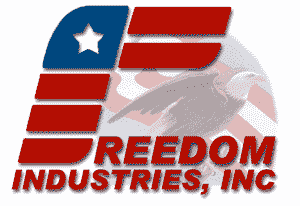Category Archives: WV Chapter 11 Debtors
Avoiding Emergency Bankruptcy Filings
It was the day before Thanksgiving. A friend of mine called me in a panic. She received a notification that her bank account was frozen by a creditor; she was to get a direct deposit of her salary in the next 2 days, which was two weeks before Christmas. She needed to file bankruptcy fast in order to trigger the automatic stay (legal principle that means no creditor can take action to harm you).
I stayed up until midnight that day in order to get the case filed for her. Her business had gone bad and this was the fallout from it.
Often, bankruptcy cases are filed on an emergency basis. In many instances, time may be of the essence and you need to file the case immediately (e.g. a creditor has a judgment against you and has sent the Sheriff to your home or business; you have received a notice of garnishment of your wages or bank account by a taxing body). If this firedrill can be avoided, it should be.
Rushing into a case is pretty much never a good idea. Filing the petition on an emergency basis only increases the costs of your case and there may not be enough time to research potential issues that may arise during the course of your case. You may omit important creditors. You may omit assets. If the schedules are not accurate, you will need to amend them and that costs more money to do. Substantial, repeated amendments do not leave favorable impressions upon the U.S. Trustee or the Ch. 7 Trustee.
A debtor is permitted to file a barebones “emergency “bankruptcy petition together with a list of 20 largest creditors. The full set of schedules must be submitted within 14 days, unless extended.
Regardless of whether the case is an emergency filing or not, if you are an individual, you MUST complete pre-bankruptcy filing credit counseling course at least 24 hours before any case is filed.
BOTTOM LINE:
- Talk to an attorney. He or she can give you the questionnaire you need to fill out well ahead of time. He or she will also give you a list of documents you will need You can start gathering that info. If the case is billed hourly, you will save yourself money by gathering up this information rather than having a paralegal do it.
- Pre-bankruptcy planning is always advisable for any individual or business. You don’t want to throw good money after bad (meaning you don’t want to pay down debt that ultimately may be discharged). You don’t want to make preferential or fraudulent transfers. Often, there are non-bankruptcy options, particularly for businesses (but that can be a topic for another blog post).
DISCLAIMER: This does not constitute legal advice. This post does not create an attorney client relationship. Consultant an attorney for more information re: this topic.

WV Transport Company, Medford Trucking, LLC, runs out of road and seeks Chapter 11 protection
By: Matthew B. Smith, Law Clerk
Medford Trucking, LLC filed for voluntary Chapter 11 bankruptcy in the United States Bankruptcy Court for the Southern District of West Virginia on June 27th, 2014. The case has been assigned to the Honorable Robert G. Pearson under case number 2:14-bk-20354 .
 Debtor claims assets of less than $50,000 with liabilities of less than $50,000. However the enumerated claims exceed $1 million. Among the debtor’s 19 creditors are Petroleum Products, Inc., American Express, Bank of America, and several other companies and law firms. Debtor is represented by Brian R. Blickenstaff of Turner & Johns, PLLC from Charleston, West Virginia.
Debtor claims assets of less than $50,000 with liabilities of less than $50,000. However the enumerated claims exceed $1 million. Among the debtor’s 19 creditors are Petroleum Products, Inc., American Express, Bank of America, and several other companies and law firms. Debtor is represented by Brian R. Blickenstaff of Turner & Johns, PLLC from Charleston, West Virginia.
Debtor is a transport company that was founded in 2001 and headquartered in Charleston, West Virginia. Debtor has operated as many as 82 tractor-trailer rigs, and employed as many as 160 drivers. Debtor carries a USDOT Number permitting it to haul non-hazardous materials within the state of West Virginia. Debtor specializes in light freight and coal hauling.
West Virginia’s 2014 Economic Outlook
In the beginning of 2014, I was asked by the WV Attorney General’s office to participate in a town hall meeting to discuss issues impacting the WV economy. As a business and bankruptcy lawyer, I wanted to do my diligence. I asked my clients and colleagues what they believed were significant factors. Here was a punch list of the issues identified by them and those at the town hall meeting:
- retention and attraction of young talent
- scarcity of livable downtown spaces in major WV cities, Weirton, Wheeling, Huntington, Charleston, Martinsburg, Morgantown
- healthcare reform proving costly for new businesses
- business and Occupancy taxes
- rampant drug addiction
- revitalization of old industry to attract new industry.
- deterioration of main streets
- oil and gas industry presence.
Prior to the town hall meeting, I also asked Justin Saporito, my law clerk to take to google to research this topic.
****
Justin found a 2014 Outlook Report (Report) for WV’s economy, produced by West Virginia University’s College of Business and Economics (one of my alma maters).
The economy of West Virginia has grown steadily over the past year with Gross Domestic Product (GDP) growing by 3.3% over the past year, ranking it tenth (10th) among U.S. states in real GDP growth. This growth was the result of several factors such as the addition of 3,000 new jobs over the past year, a state unemployment rate that has remained 1% below the national average for the past five years, and increased exports. Exports accounted for 16% of state economic output in 2012 compared with only 5% in 2000. The housing and automotive sectors of the economy, important indicators of economic health, have also seen increases. Home sales in WV are on par with home sales during the 2004-2005 housing boom and auto sales are at pre-recession levels.
According to the report, the key drivers of the economy in 2012 were coal mining, natural gas, healthcare, tourism, electrical power manufacturing, and chemical manufacturing. The Report predicted that annual job growth would increase in the healthcare services, wholesale and retail trade, construction, and professional and business service sectors every year through 2017.
A shining light for WV’s economy has been the city of Morgantown. Morgantown boasts an unemployment rate that is 3% below the national average with job growth above the national average with an estimated annual job growth rate of 2% in the coming years.
It is not all good news for WV however as it is ranked 47th among the 50 states in per capita income. Another major concern is the declining and aging population. WV’s median age is 5 years above the national average. Another concern is the state budget, ¼ of which comes from coal tax revenue and lottery revenue. With coal production predicted to fall through 2017, the state will have to find additional sources of revenue in the coming years. Despite these looming issues, WV is expected to have revenue growth of 3.5% for 2014.
-Justin Saporito
-Salene Kraemer
Freedom Industries, Inc. Files for Chapter 11 Bankruptcy Following Historic WV Chemical Spill
By: Justin A. Saporito, MAZURKRAEMER Law Clerk
The following case is of particular interest to Salene since she is originally from Weirton, West Virginia and attended West Virginia University.
Freedom Industries, Inc. filed a voluntary petition for Chapter 11 bankruptcy on January 17, 2014 in the United States Bankruptcy Court for the Southern District of West Virginia. The case has been assigned to the Honorable Ronald G. Pearson. Both assets and liabilities are estimated to be between $1 and $10 million. Approximately 700 creditors are listed in the petition including multiple WV state agencies, service companies, and private individuals. Multiple motions were filed along with the petition including motions to allow payments to essential trade vendors and to pay $2.4 million in unpaid taxes to the IRS. A summary of debtor’s filings can be found here.
Debtor is a specialty chemicals manufacturer founded in 1986 and located in Charleston, WV. It manufactures chemicals for the mining, steel, and cement industries and is wholly-owned by Chemstream Holdings, Inc. The Charleston chemical plant is located along the Elk River and has recently been widely publicized as the cause of a chemical spill that contaminated the Elk River on January 9th, 2014 which led to state and federal states of emergency being declared. The spill left 300,000 residents without running water for several days. The chemical that leaked into the river is used in coal processing. The local water supply is currently said to be safe for residents in the nine affected counties except for residents in certain towns. Additionally, pregnant women in the affected areas are advised to drink only bottled water at this time.
Debtor is represented by Mark E. Freedlander of McGuire Woods LLP and Stephen L. Thompson from Barth & Thompson. Debtor also filed a motion to Employ Pietragallo, Gordon, Alfano, Bosick, and Raspanti, LLP as Special Litigation Counsel.
Fairmont General Hospital of Fairmont, WV Files for Chapter 11 Protection
By: Justin A. Saporito, MAZURKRAEMER Law Clerk
On September 3, 2013 Fairmont General Hospital, Inc. of Fairmont, WV and affiliate company Fairmont Physicians, Inc. (“debtors”) filed voluntary petitions for bankruptcy relief under Chapter 11 of the bankruptcy code with Fairmont General Hospital, Inc. as the lead debtor. The petitions were filed with the United States Bankruptcy Court for the Northern District of West Virginia with the assigned case numbers 1:13-bk-01054 and 1:13-bk-01055 respectively. The cases were assigned to the Honorable Judge Patrick M. Flatley (who is originally from Salene’s hometown of Weirton by the way) and consolidated (by debtors’ request) under case number 1:13-bk-01054.
 The Debtors’ Chapter 11 Plan and Disclosure Statement are due by January 2, 2014. Schedules A-J were originally due on September 17, 2013 as were a Statement of Financial Affairs, Statement of Operations, Federal Income Tax Return, and other filings. (Please see the docket summary for a complete list of due filings.) At the time of filing, the debtors made multiple motions including motions to extend the time before the required Schedules and other would become due, maintain existing financial institutions and practices, pay pre-filing debts and obligations, and maintain utility services. All of these motions were granted. For a complete breakdown of the case please refer to the docket summary. The Meeting of Creditors has been set for Thursday, October 31, 2013 at 10:00 AM.
The Debtors’ Chapter 11 Plan and Disclosure Statement are due by January 2, 2014. Schedules A-J were originally due on September 17, 2013 as were a Statement of Financial Affairs, Statement of Operations, Federal Income Tax Return, and other filings. (Please see the docket summary for a complete list of due filings.) At the time of filing, the debtors made multiple motions including motions to extend the time before the required Schedules and other would become due, maintain existing financial institutions and practices, pay pre-filing debts and obligations, and maintain utility services. All of these motions were granted. For a complete breakdown of the case please refer to the docket summary. The Meeting of Creditors has been set for Thursday, October 31, 2013 at 10:00 AM.
Fairmont General Hospital (FGH) is a private, non-profit, community hospital that was originally founded in 1939. FGH offers a variety of health services including surgical, rehabilitation, mental health, wellness/testing, emergency services, and more. For a complete list of the services they offer please click here.
The debtors claim assets and liabilities between $10 and $50 million. Notably, the debtors are currently seeking a strategic partner to take over its facility. The debtors are represented by Rayford K. Adams, III of Spilman, Thomas, & Battle, PLLC. Spilman, Thomas, & Battle, PLLC has seven offices spread across West Virginia, Pennsylvania, Virginia, and North Carolina with three of their offices located in West Virginia.
Chapter 11 Debtors Beware: Do Not Fail to Pay Quarterly Fees Owed to the U.S. Trustee
By: Justin Saporito, Law Clerk and Salene Mazur Kraemer, Owner
What fees are associated with filing a Chapter 11 case? Aside from payment of attorneys’ fees (which can be steep), there are filing fees and ongoing quarterly administrative fees.
For a chapter 11 case, quarterly fees must be paid to the U.S. Trustee each quarter, or fraction thereof, until that case is closed, dismissed, or converted. These fees are in addition to the filing fee that must be paid by the debtor. The amount owed by the debtor is based upon the amount of disbursements made during the quarter starting at a minimum of $325 with a maximum of $30,000. (Complete breakdown of quarterly fees w/ instructions.) Again we repeat, there is a minimum payment of at least $325 a quarter. If significant assets are sold, a debtor may be looking at a quarterly fee up to $13,000 or even $30,000 to be made payable to the U.S. Trustee’s office. The fee schedule is uniform for all Federal Judicial Districts that are a part of the U.S. Trustee Program which includes all Federal Judicial Districts except for Alabama and North Carolina.
Quarterly fee bills are mailed to the debtor by the U.S. Trustee at the end of each quarter with instructions on how to determine the amount of fees owed. These fees are due on the last day of the calendar month following the calendar quarter. The minimum fee is due even if no disbursements were made that quarter and failure to pay a quarterly fee is cause for conversion or dismissal of the chapter 11 case. Failure to receive an invoice does not excuse the obligation to timely pay U.S. Trustee’s fees. Debtor’s counsel should contact the Office of the U.S. Trustee If a quarterly bill is not received, unless counsel for the debtor has executed an authorization allowing the U.S. Trustee to discuss the issue of quarterly fees with the debtor.
For payments made by check, the payment is converted to an electronic funds transfer (EFT). This means that the account information will be copied from the check to electronically debit the debtor’s account for the amount of the check. The debit usually occurs within 24 hours after which the original check is destroyed. A copy of the check will be made by the U.S. Trustee’s Office however. If the EFT cannot be process due to technical reasons, the debtor authorizes the U.S. Trustee’s Office to process the copy in place of the original check. If the EFT cannot be completed due to insufficient funds, two more attempts to make the transfer may be made.
TIPS FOR THE CHAPTER 11 DEBTOR: Payment of these U.S. Trustees fees is important. The U.S. Trustee is an agent of the Department of Justice. He or she is a lawyer who plays a critical and influential role in every Chapter 11 Case (more on this later). Do not overlook paying these fees or responding to any requests made by a U.S. Trustee. If a Debtor ignores such requests or fails to pay U.S. Trustee fees, the Debtor can almost be certain that a Motion to Dismiss the Case or Convert the Chapter 11 Case to Chapter 7 Case (liquidation) will be forthcoming.
Riverview Country Club Files for Chapter 11 Bankruptcy in West Virginia
By: Justin Saporito, MAZURKRAEMER Law Clerk
 On September 10, 2013, the Riverview Country Club, Inc. filed a Chapter 11 Voluntary Petition in the United States Bankruptcy Court for the Southern District of West Virginia, Case No 2:13-bk-20467 in front of the Honorable Judge Ron Pearson. Riverview Country Club is a semi-private 18 hole regulation golf course that was built in 1970 and opened in 1972. Riverview Country Club is located on Route 17 Riverview Course Road in Madison, West Virginia 25130. The 6,069 yard par 70 course was designed by Bob Plant and is open year round to the public.
On September 10, 2013, the Riverview Country Club, Inc. filed a Chapter 11 Voluntary Petition in the United States Bankruptcy Court for the Southern District of West Virginia, Case No 2:13-bk-20467 in front of the Honorable Judge Ron Pearson. Riverview Country Club is a semi-private 18 hole regulation golf course that was built in 1970 and opened in 1972. Riverview Country Club is located on Route 17 Riverview Course Road in Madison, West Virginia 25130. The 6,069 yard par 70 course was designed by Bob Plant and is open year round to the public.
The Debtor claims assets valued between 0$ to $50,000 with liabilities of $500,001 to $1 million listing BB&T, Dollar Bank Leasing Corp, Motive Power, Inc. Premier Bank, and USX Transportation as creditors. The Debtor is represented by Mitchell Lee Klein of Klein Law Office located at 3566 Teays Valley Road Hurricane, WV 25526. Mr. Klein filed a Corporate Statement Ownership Statement and Corporate Resolution.




